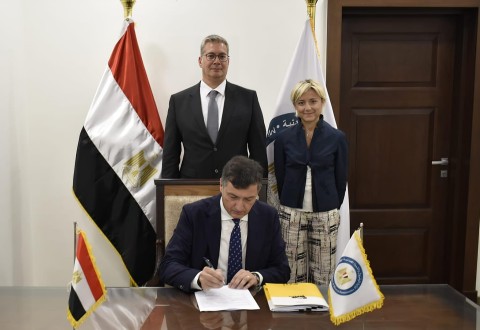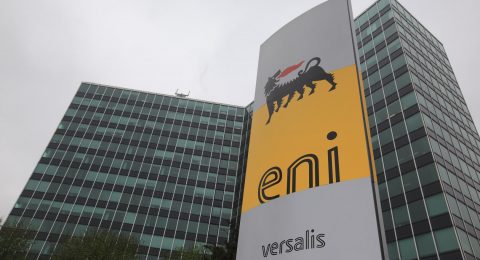Eni Chief Executive Officer Claudio Descalzi and Snam Chief Executive Officer Stefano Venier inked an equal joint venture (JV) agreement to develop and manage Phase 1 of the Ravenna Carbon Capture and Storage (CCS) Project. The agreement also includes the implementation of studies and preparatory activities for the subsequent development phases.
Eni’s Casalborsetti natural gas treatment plant’s 25,000 tones of CO2 emissions are covered by Phase 1 of the Ravenna CCS Project (Ravenna). Once captured, once it has been captured, the CO2 will be transported via pipe to the Porto Corsini Mare Ovest platform and then injected into the named depleted gas field offshore of Ravenna.
Eni CEO Claudio Descalzi commented: “Today it is necessary to join forces in order to reconcile decarbonization goals, energy security and competitiveness. This agreement represents an example of excellence, leveraging industrial synergies to contribute to the decarbonization of Italy’s production system. Phase 1 of the Ravenna Project will allow to reduce emissions from the Casalborsetti power plant, launching in Italy a project based on a mature technological process that is key for the achievement of our climate goals. CCS is complementary to renewables, to energy efficiency solutions and to the other available levers and is central to avoiding CO2 emissions from highly energy-intensive sectors that currently have no technological alternatives for decarbonization”.
Snam CEO Stefano Venier said: “It is a fact that CCS technologies have consolidated their role at a global level as a tool available to achieve decarbonization goals, and for this reason they are gaining more and more attention from governments, investors and industry players. CCS projects are being developed globally and are already at an advanced stage both in Europe – especially in the UK, the Netherlands and the Nordic countries – and in the US. This joint venture sets the first initiative in Italy with the ambition to offer a solution to the entire hard-to-abate production cluster in the Po Valley, and potentially also to other Italian regions as well as other countries bordering the Mediterranean basin. Snam will contribute to the project with its know-how and distinctive skills in the transport and management of molecules, in this case CO2.”
The project is a key step toward meeting the decarbonization needs of the “hard-to-abate” industries, including steel mills, cement plants, ceramics, chemicals, and more broadly, the “hard-to-abate” industry, through an immediately accessible, highly efficient, and effective technological process that takes advantage of the local infrastructure and expertise. The planned activities will create new job opportunities, with an overall estimate of over 500 new jobs during Phase 1 of the project.
The Intergovernmental Panel on Climate Change (IPCC) and the International Energy Agency (IEA), in their most recent reports, confirm CO2 capture, utilization, and storage as one of the “must-have” solutions for achieving climate goals, and their analyses reflect the significant role of CCS in climate change mitigation strategies.












